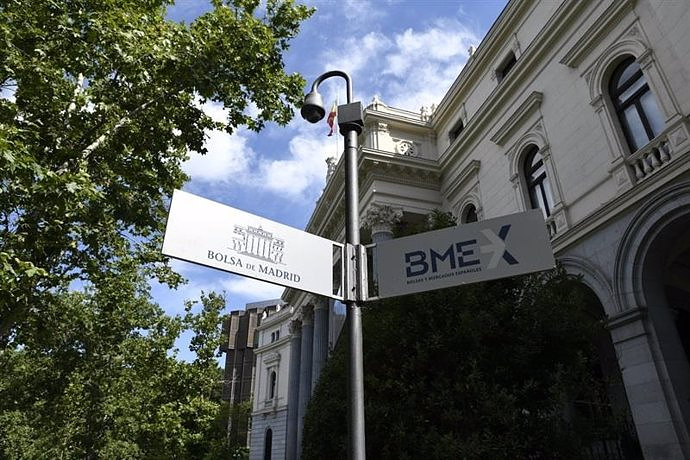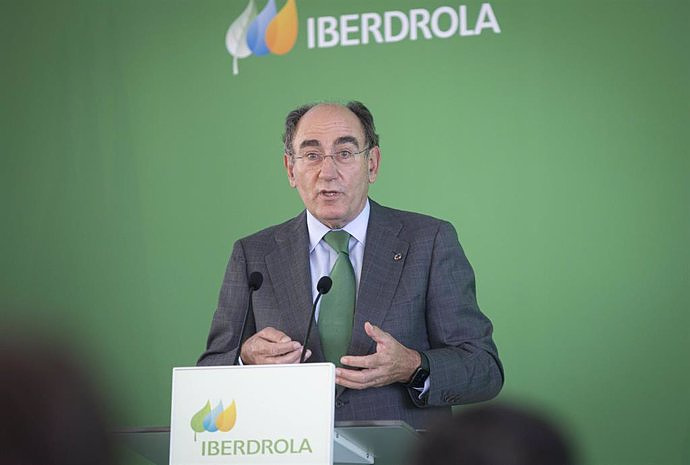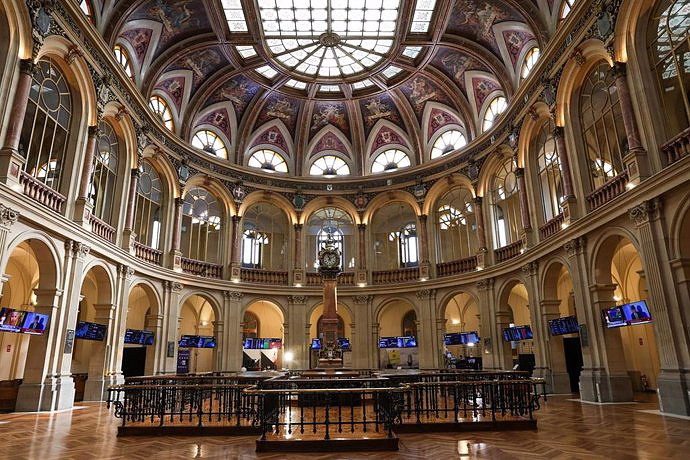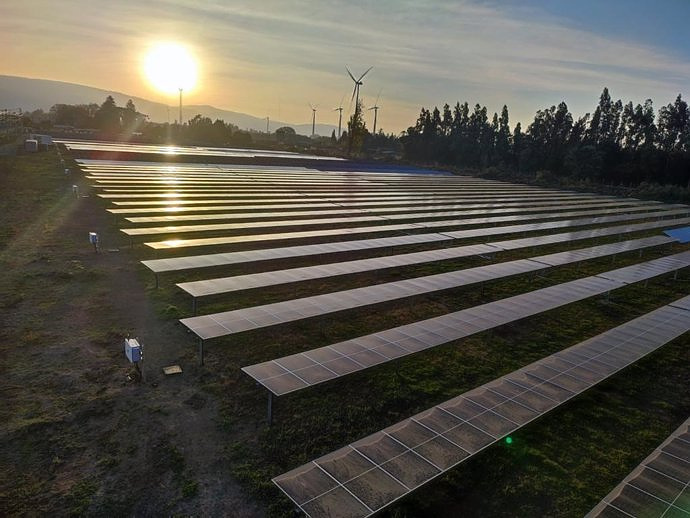The conservative bloc manages to delay the debate on the candidates to give priority to the procedure
The General Council of the Judiciary (CGPJ) has not managed to reach an agreement on the two magistrates of the Constitutional Court (TC) that it is responsible for appointing, since the extraordinary plenary session held this Thursday with this objective has only served for the members to set the "rules of the game", as proposed by the conservative wing, which makes it difficult to meet the legal deadline to make these appointments, which expires on September 13.
After almost four hours of meeting, recess included, the members have established the rules of call, proposal and voting. According to the text of the agreement, to which Europa Press has had access, the plenary session to elect the two magistrates of the TC will take place when the president, Carlos Lesmes, agrees on his own initiative or when requested by at least five members and it will be already when there are two candidates, although once convened others may be proposed.
The members may vote for a maximum of two candidates in each ballot and the designation will be considered completed when the candidates obtain the twelve necessary votes, either simultaneously or successively.
In the event that no candidate obtains a sufficient number of votes, this circumstance will not prevent the same candidates from being proposed in successive plenary sessions.
Lesmes convened this Plenary in July, urging the 18 members that currently comprise it to reach an agreement on the two people that the CGPJ must propose to replace the four TC magistrates whose mandate expired on June 12.
Despite the fact that the formal objective was that, that there would be white smoke this Thursday, the reality is that there was little chance of it being achieved, since the so-called conservative sector of the CGPJ had warned that it would not talk about candidates until the rules were established for the proposal and vote.
This 'hard core' had also warned that "the Council's decision times" had to be respected, thus anticipating that they did not perceive September 13 as a deadline, according to the sources consulted by Europa Press.
Lesmes, in statements to the press during the opening ceremony of the judicial year, already pointed out that the foundations would be laid in this plenary session. Although he insisted that it was possible to appoint the magistrates of the TC in time, he predicted that it would be difficult, although at the same time he affirmed that it should not be delayed beyond September.
BLOCK THREAT
The Government indicated on September 13 in the last modification of the Organic Law of the Judicial Power (LOPJ) to return to the CGPJ its power to make discretionary appointments in the judicial leadership but only to appoint its two candidates to the TC, maintaining the limitation of functions for the rest of the nominations, which generated "disaffection" in the Council, as Lesmes himself has acknowledged.
The discomfort among the conservative sector reached such heights that some of its members had raised the possibility of not reaching any agreement on the Constitutional Court, thus blocking its partial renewal, as a way of increasing the pressure to achieve a new CGPJ, since this expired in December 2018.
The underlying problem is that if the CGPJ does not propose its two magistrates, it is not clear that the Constitutional can be renewed. The Magna Carta indicates that the TC must be refreshed by thirds and the one that expired on June 12 is the one that corresponds to the CGPJ and the Government. The legal sources asked by this news agency cast doubt on the legal possibility that the two appointed by the Executive can take office without the participation of the other half: the CGPJ.
However, Lesmes warned on Monday that he would not allow "a CGPJ in absentia", emphasizing that the appointment of the two magistrates of the TC is an obligation that the Constitution imposes on the Council. And, on Tuesday night, the conservative faction held an informal meeting in which they agreed on a common position that goes through "defending institutionality in any case", that is, reaching "duly consensual agreements."
To make this appointment, the General Council of the Judiciary must win a three-fifths majority, which translates into twelve members. That means that, in addition to the so-called progressives -where eight votes can be counted right now-, four conservatives must support the two decanted candidates.

 Exploring Cardano: Inner Workings and Advantages of this Cryptocurrency
Exploring Cardano: Inner Workings and Advantages of this Cryptocurrency Seville.- Economy.- Innova.- STSA inaugurates its new painting and sealing hangar in San Pablo, for 18 million
Seville.- Economy.- Innova.- STSA inaugurates its new painting and sealing hangar in San Pablo, for 18 million Innova.- More than 300 volunteers join the Andalucía Compromiso Digital network in one month to facilitate access to ICT
Innova.- More than 300 volunteers join the Andalucía Compromiso Digital network in one month to facilitate access to ICT Innova.-AMP.- Ayesa acquires 51% of Sadiel, which will create new technological engineering products and expand markets
Innova.-AMP.- Ayesa acquires 51% of Sadiel, which will create new technological engineering products and expand markets Garbiñe Muguruza: "Winning my two 'big ones' at Williams has a special value"
Garbiñe Muguruza: "Winning my two 'big ones' at Williams has a special value" Catalonia extends price containment to all rentals except vacation rentals
Catalonia extends price containment to all rentals except vacation rentals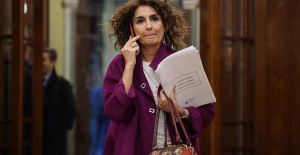 Montero rules out deflating personal income tax because the most common salary in Spain saves 871 euros per year on this tax
Montero rules out deflating personal income tax because the most common salary in Spain saves 871 euros per year on this tax The Ibex 35 lost 0.1% in the mid-session, but retained 11,000 integers
The Ibex 35 lost 0.1% in the mid-session, but retained 11,000 integers How Blockchain in being used to shape the future
How Blockchain in being used to shape the future Not just BTC and ETH: Here Are Some More Interesting Coins Worth Focusing on
Not just BTC and ETH: Here Are Some More Interesting Coins Worth Focusing on Looking for video games that value the neighborhoods of Valencia
Looking for video games that value the neighborhoods of Valencia UPV researchers improve the efficiency of air conditioning systems using a geothermal heat pump
UPV researchers improve the efficiency of air conditioning systems using a geothermal heat pump València is committed to citiverse and smart tourism to be "the reference technological hub of the Mediterranean"
València is committed to citiverse and smart tourism to be "the reference technological hub of the Mediterranean" Valencia displays its "innovative and technological potential" at the Emerge Americas event in Miami
Valencia displays its "innovative and technological potential" at the Emerge Americas event in Miami A million people demonstrate in France against Macron's pension reform
A million people demonstrate in France against Macron's pension reform Russia launches several missiles against "critical infrastructure" in the city of Zaporizhia
Russia launches several missiles against "critical infrastructure" in the city of Zaporizhia A "procession" remembers the dead of the Calabria shipwreck as bodies continue to wash up on the shore
A "procession" remembers the dead of the Calabria shipwreck as bodies continue to wash up on the shore Prison sentences handed down for three prominent Hong Kong pro-democracy activists
Prison sentences handed down for three prominent Hong Kong pro-democracy activists ETH continues to leave trading platforms, Ethereum balance on exchanges lowest in 3 years
ETH continues to leave trading platforms, Ethereum balance on exchanges lowest in 3 years Investors invest $450 million in Consensys, Ethereum incubator now valued at $7 billion
Investors invest $450 million in Consensys, Ethereum incubator now valued at $7 billion Alchemy Integrates Ethereum L2 Product Starknet to Enhance Web3 Scalability at a Price 100x Lower Than L1 Fees
Alchemy Integrates Ethereum L2 Product Starknet to Enhance Web3 Scalability at a Price 100x Lower Than L1 Fees Mining Report: Bitcoin's Electricity Consumption Declines by 25% in Q1 2022
Mining Report: Bitcoin's Electricity Consumption Declines by 25% in Q1 2022 Oil-to-Bitcoin Mining Firm Crusoe Energy Systems Raised $505 Million
Oil-to-Bitcoin Mining Firm Crusoe Energy Systems Raised $505 Million Microbt reveals the latest Bitcoin mining rigs -- Machines produce up to 126 TH/s with custom 5nm chip design
Microbt reveals the latest Bitcoin mining rigs -- Machines produce up to 126 TH/s with custom 5nm chip design Bitcoin's Mining Difficulty Hits a Lifetime High, With More Than 90% of BTC Supply Issued
Bitcoin's Mining Difficulty Hits a Lifetime High, With More Than 90% of BTC Supply Issued The Biggest Movers are Near, EOS, and RUNE during Friday's Selloff
The Biggest Movers are Near, EOS, and RUNE during Friday's Selloff Global Markets Spooked by a Hawkish Fed and Covid, Stocks and Crypto Gain After Musk Buys Twitter
Global Markets Spooked by a Hawkish Fed and Covid, Stocks and Crypto Gain After Musk Buys Twitter Bitso to offset carbon emissions from the Trading Platform's ERC20, ETH, and BTC Transactions
Bitso to offset carbon emissions from the Trading Platform's ERC20, ETH, and BTC Transactions Draftkings Announces 2022 College Hoops NFT Selection for March Madness
Draftkings Announces 2022 College Hoops NFT Selection for March Madness



